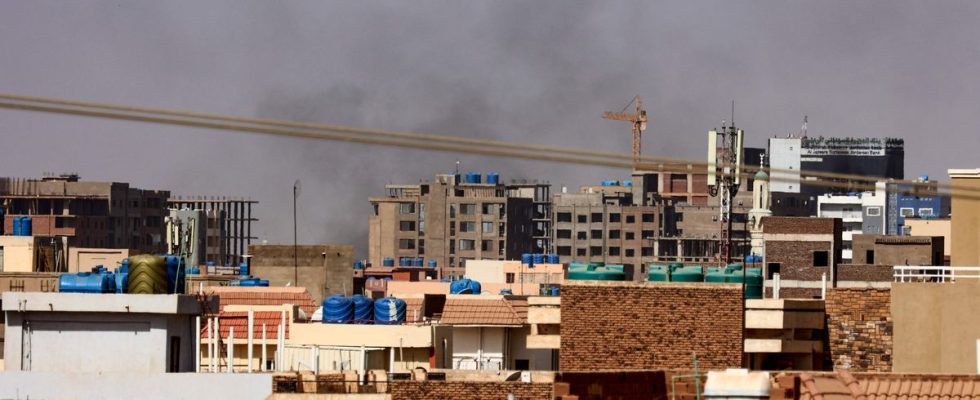Less intense fighting during Eid-el-Fitr. The violent clashes which pitted the Sudanese army on Friday against the paramilitaries of the Rapid Support Forces (RSF) in Khartoum eased in the evening in places as calls for a ceasefire to let civilians and foreigners leave are increasing.
At the end of the seventh day of clashes which left 413 dead and 3,551 injured, according to the World Health Organization (WHO), the world had pleaded for a truce on the occasion of Eid, the feast of three days which marks the end of Ramadan and which began on Friday.
The FSR in the morning then the army in the evening announced that they accepted this pause in the fighting. But, as always for several days, the two camps accused each other of having broken the truce. During the night, however, witnesses in several districts of the capital said they heard no more explosions.
A “catastrophic” humanitarian situation in Darfur
For seven days, the two camps have claimed to hold many strategic buildings, including the airport. But the air raids, crossfire and fighting are so intense that it is impossible to go and check on the spot. Washington has announced to send soldiers to the region to facilitate a possible evacuation; South Korea and Japan will send planes. The European Union is considering an evacuation as soon as possible by land.
This violence between the army of General Abdel Fattah al-Burhane, de facto leader of Sudan since the putsch of 2021, and the FSR of General Mohamed Hamdane Daglo have “put out of service 70% of the hospitals in the combat zone”, reports the doctors’ union.
In Darfur, one of the poorest regions of Sudan, itself one of the poorest countries in the world, “the situation is catastrophic”, says a doctor from Médecins sans frontières (MSF). “There are so many patients that they are treated on the floor in the corridors because there are simply not enough beds,” he said from this region where the Janjawid militiamen, the bulk of the RSF , committed atrocious abuses during the civil war in Darfur which started in 2003. Since the beginning of hostilities, 10,000 to 20,000 people, mainly women and children, have crossed into neighboring Chad, according to the UN.

